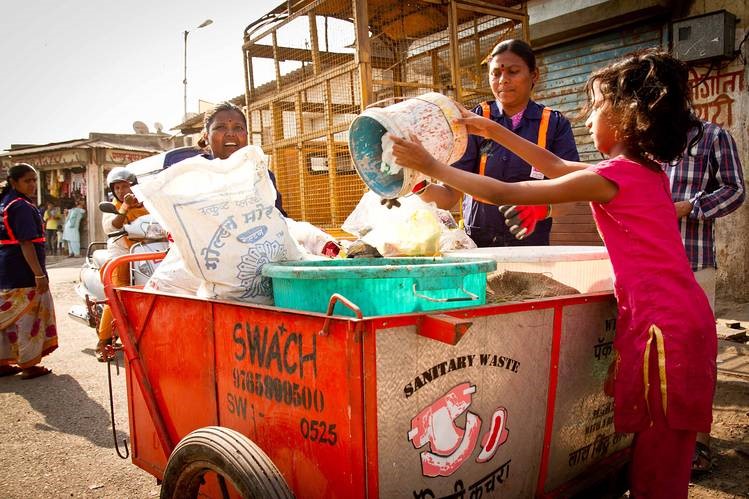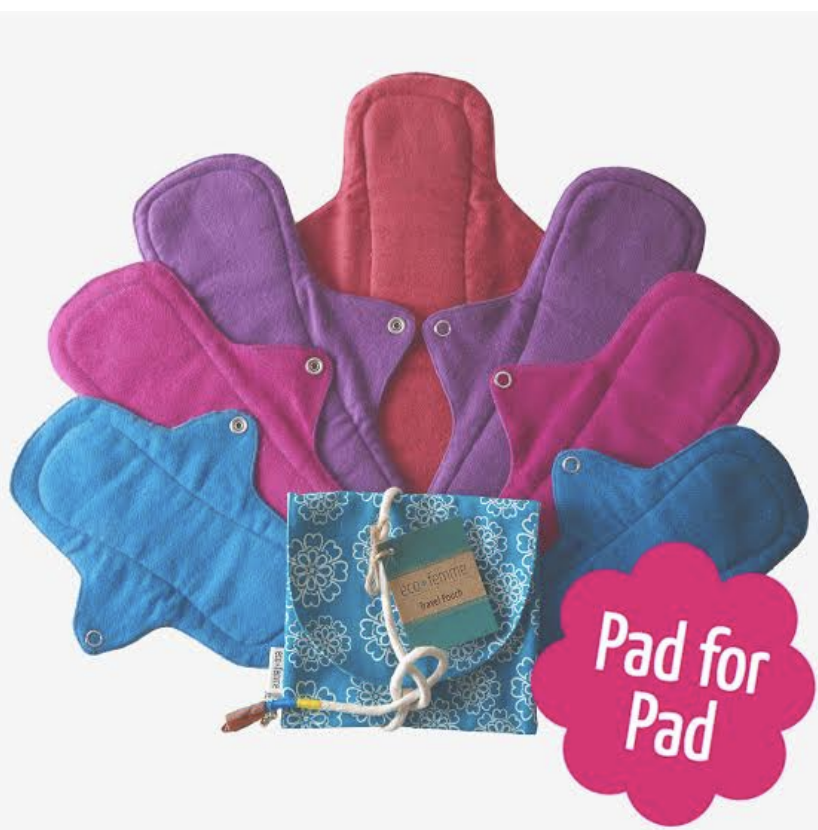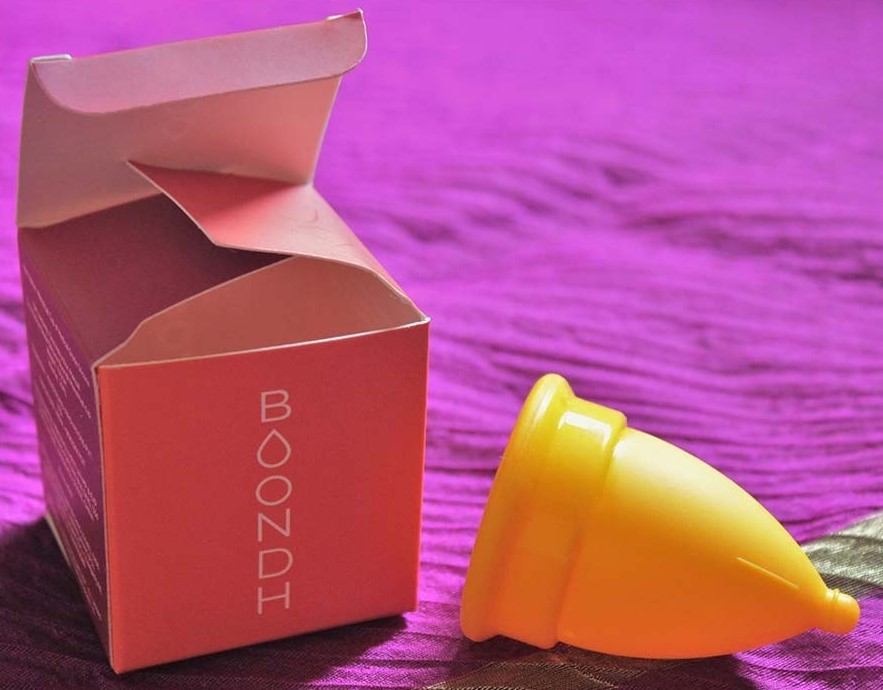Abstract
Research estimates that there are over 800 million women who menstruate on a daily basis. And yet the go-to menstrual solution is single-use plastic-based disposable sanitary pads. It is estimated that a single woman generates 130 to 150 kg of menstrual waste through the course of her menstruating years as a result of non-biodegradable menstrual pads.
The large market size along with the ever-growing market of feminine hygiene products should place increased importance on the development of sustainable solutions.
The development of these sustainable solutions is crucial to the long-term resource conservation and waste management efforts in India. There are policy-wide changes that need to occur but this process of resource conservation can be greatly improved with the introduction of sustainable menstrual products.
The sustainable innovation of menstrual products is being driven by two key organizations in India; EcoFemme and Boondh.
This Case Study is brought to you by Nelis’ 4REVS Research Program. Nelis is an NPO with an active and expanding network of young social innovators and leaders, sustainability practitioners, and creative minds from all continents (100+ countries) that enables us to provide experiential and on-the-ground knowledge. If you want to know more or be part of our network, please leave a comment! Or contact us in www.nelisglobal.org
Overall Description
Gravity of the Situation in India
In 2017 the feminine hygiene products market in India was valued at $340 million and is predicted to reach $522 million by 2020. Most of these products contain 90% plastic. Disposable sanitary pads are meant to be used once and thrown away. Yet, haven’t been classified as single-use plastic products. A problem that has resulted in significant waste generation and little to negligible awareness around its usage. Additionally, the mismanagement of menstrual waste is due to its categorization as domestic hazardous waste and not as biomedical waste.
The Menstrual Hygiene Alliance India estimates that are nearly 336 million women who menstruate. Of this total, nearly 36% of
women use disposable sanitary pads, which equates to 121 million women.
The use of disposable sanitary pads is a key contributor to waste generation since very few cities in India use solid waste segregation technology to identify and segregate menstrual waste. The scale of use of disposable sanitary pads is enormous. Assuming, that a woman uses 8 pads during a single menstrual cycle, places the total number of disposed of menstrual pads annually at 12.3 billion.
In India, there are norms in place on the disposal of menstrual waste under the Solid Waste Management Act, however, little to no awareness around menstruation has resulted in a ballooning problem. A study conducted by the global non-profit, PATH, estimates that 1 billion non-biodegradable sanitary pads find there are disposed of in landfills, urban sewage systems, water bodies, and rural fields every month.
The cause for concern is two-fold since not only do sanitary pads take 500 to 800 years to decompose but also contain superabsorbent polymers (SAP). The SAP contained in disposable sanitary pads ensures that they absorb and retain 30% of their weight in fluids. This results in the clogging of drainage and sewage systems. The disposable sanitary pads cannot be incinerated effectively with the current technology as well since burning of sanitary pads results in the emission of dioxins and furans.
From a policy perspective, India has indeed taken steps to ensure that menstrual waste does not reach landfills and water bodies. The regulations stipulate that all forms of menstrual waste need to be redirected to any of the 215 large scale common bio-medical waste incinerators. However, this requires large-scale segregation efforts across the country along with awareness around menstruation and menstrual waste management. The two big challenges ahead are to develop sustainable solutions and improve awareness around sustainable and safe menstruation.
Period Poverty across India
One of the major stumbling blocks to the initiation of effective waste disposal technology and sustainable alternatives to non-biodegradable disposable sanitary pads is the taboo that surrounds menstruation. Across India, there is significant misinformation and a lack of awareness around menstruation. Studies show that 71% of women in India are unaware of what menstruation is until their first period. The culture of silence that exists around menstruation has resulted in only 40% of women having access to safe menstrual products
The social impact of period poverty cannot be understated with a WaterAid study estimating that nearly half the young women in South India are pulled out of schools as a result of getting their menstrual cycle.
Going Green with Menstruation
There are two key organizations in India that are focused on driving the sustainable menstrual revolution. The two organizations are EcoFemme and Boondh.
EcoFemme is a women-led social enterprise that is recognized across the Asia-Pacific as a trendsetter because of its sustainable menstrual products and extensive community outreach program. To date, EcoFemme has distributed more than 700,000 washable cloth pads (both commercially and non-commercially). These washable cloth pads last up to 5 years. Their initiative has resulted in approximately 54.8 million disposable sanitary napkins ending up as waste. The organization also focuses immensely on their ambassador program, workshops, and grassroots partnerships.
Boondh provides sustainable menstrual cups as an alternative to disposable menstrual pads. The cups have a 7-10-year lifespan in comparison to the 4-6-hour lifespan provided by disposable pads. The product promotes zero-waste menstruation and costs around 2000 rupees for the entire menstrual lifecycle. While in comparison, disposable menstrual pads result in 60,000 to 1,20,000 rupees over the course of the menstrual lifecycle. The Boondh cups are both sustainable and cost-effective alternative to disposable menstrual cups.
Main features or Highlights
Gravity of the Situation in India
- There has been an increase of 53.53% of market growth with respect to feminine hygiene products.
- The total number of disposed of sanitary pads that are consumed on an annual basis is around 12.3 Billion.
- Disposable sanitary pads have superabsorbent polymers (SAP), which absorb waste fluids and increase the weight of waste generated by 30%.
- Improper incineration of non-biodegradable pads can lead to the generation of dioxins and furans.
- Waste segregation is minimized due to the categorization of menstrual waste as domestic hazardous waste and not as biomedical waste.
Gravity of the Situation in India
- 71% of young women are unaware of what periods are.
- Only 40% of women have access to safe sanitary products.
- Young women are taken out of school at the start of their menstruation cycle.
Going Green with Menstruation
- EcoFemme’s washable cloth pads and Boondh cups are reducing the amount of waste that is generated by disposable sanitary pads.
- The lifespan of the washable pads is at 5 years and the Boond cups is at 7 to 10 years. In comparison, the sanitary pads are a single-use plastic product that only has a lifespan of 4 to 6 hours.
- Over the course of the menstrual lifecycle, the amount spent on disposable menstrual products are 5900% more expensive than Boond Cups.
Why is this Revolutionary?
EcoFemme’s washable pads and Boondh cups are sustainable alternatives to disposable menstrual pads. 1 washable pad from EcoFemme is equivalent to 75 disposable sanitary pads. While 1 Boondh cup is equivalent to using 200 disposable sanitary pads.
The products developed by EcoFemme and Boondh are cost-effective and are focused on minimizing the damage created by disposable menstrual pads as a result of their longer lifespan.
The products developed by these organizations, also heavily focus on minimizing resource consumption and on the decrease in the use of single-use plastic products.
Concrete examples
EcoFemme, India
EcoFemme is a women-led social enterprise that focuses on sustainable menstrual solutions. The organization also has a “pad for pad” initiative that looks to enable community empowerment.
Co-founder at EcoFemme: Jessamijn Miedema
Boondh, India
Boondh is an organization that focuses primarily around environmental and economic sustainability with respect to body positivity and menstruation.
Founder at Boondh: Bharti Kannan
(https://www.linkedin.com/in/bharti-kannan-a6bb41104/?originalSubdomain=in)
Visuals (incl.references)

Image 1: Sanitary Waste Collection Service| Source: Wall Street Journal

Image 2: Washable Cloth Pads | Source: EcoFemme

Image 3: Menstrual Cups from Boondh | Source: EcoTrunk

Image 4: Various green menstruation products| Source: Ecofemme
References:
- Boondh Website: http://www.boondh.co/index.php
- EcoFemme Website: https://ecofemme.org/
- Sally Ho, 5 Social Impact Startups Revolutionising Feminine Care Across Asia, 2019: https://www.greenqueen.com.hk/5-social-impact-startups-revolutionising-feminine-care-across-asia/
- Disposable Sanitary Napkins: A Case Of Single Use Plastic?, 2020: https://www.cps.iitb.ac.in/disposable-sanitary-napkins-a-case-of-single-use-plastic/
- Sushmitha Malaviya, The mammoth task of managing menstrual waste in India, 2019: https://www.downtoearth.org.in/blog/health/the-mammoth-task-of-managing-menstrual-waste-in-india-63376
- 5 Facts about menstrual hygiene in South Asia, BorgenProject, 2020: https://borgenproject.org/5-facts-about-menstrual-hygiene-in-south-asia/
- Aishwarya Upadhyay, Menstrual Hygiene Day Facts: Only 36 Percent Of The Women In India Use Sanitary Pads During Periods, NDTV, 2019: https://swachhindia.ndtv.com/menstrual-hygiene-day-facts-26-percent-use-sanitary-pads-periods-34309/
Article by: Suryakumar Appu, 4REVS researcher (and more)

